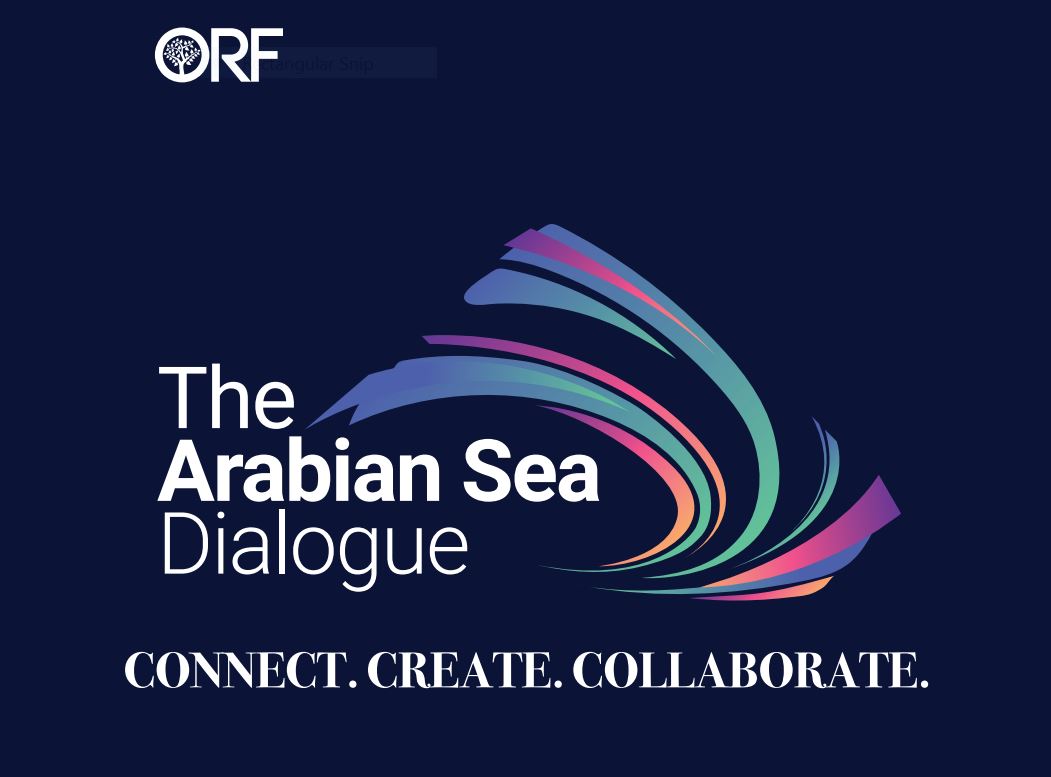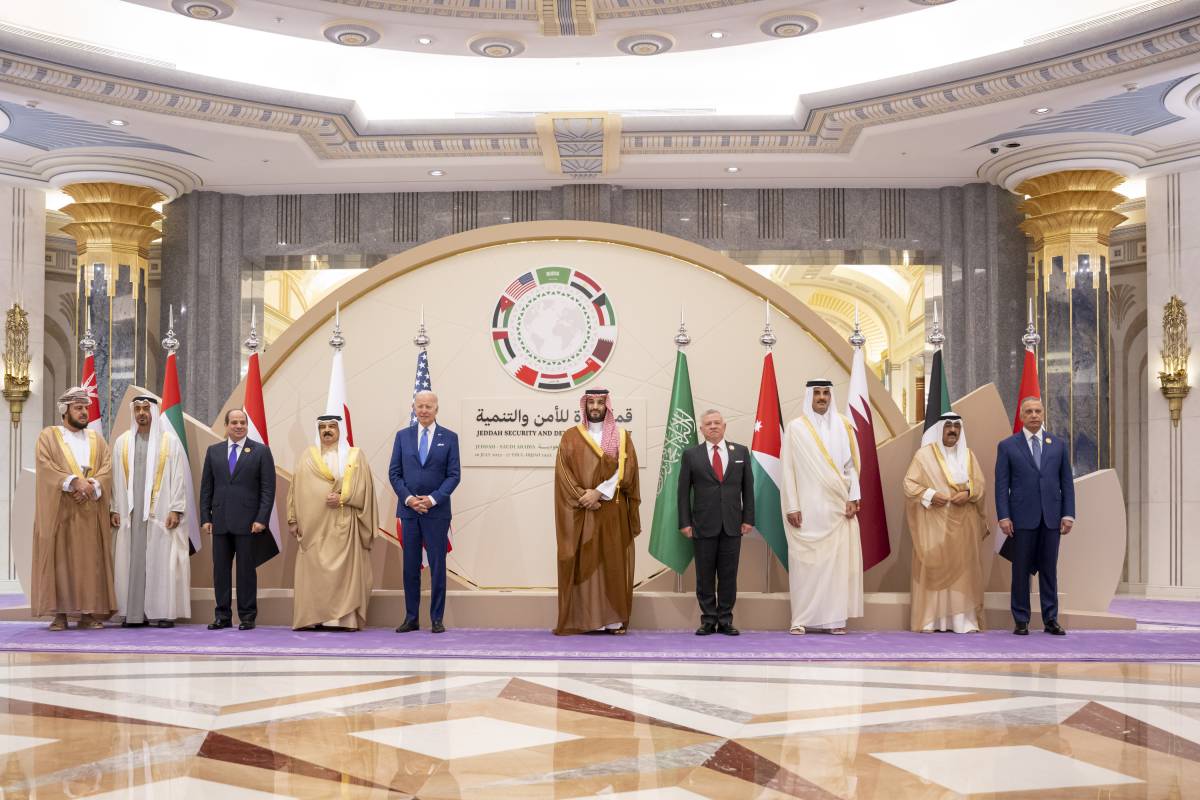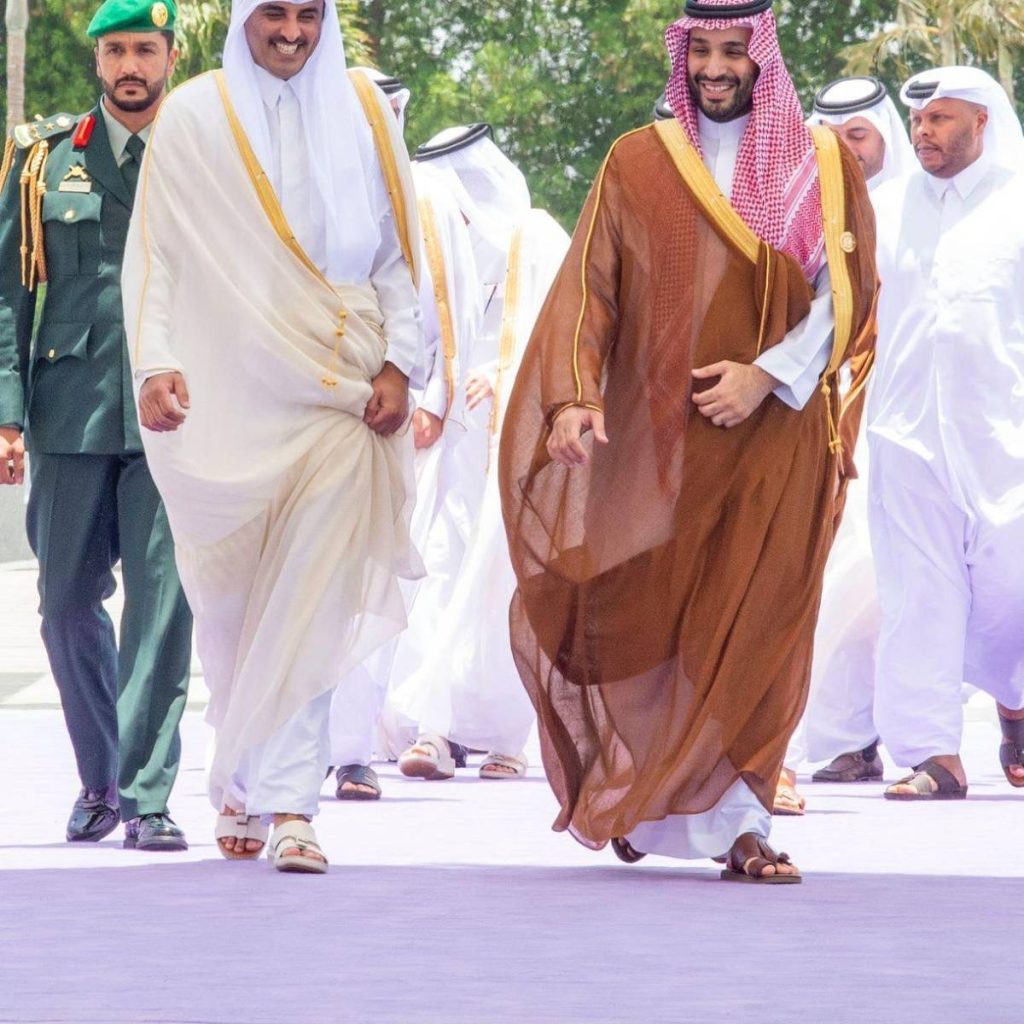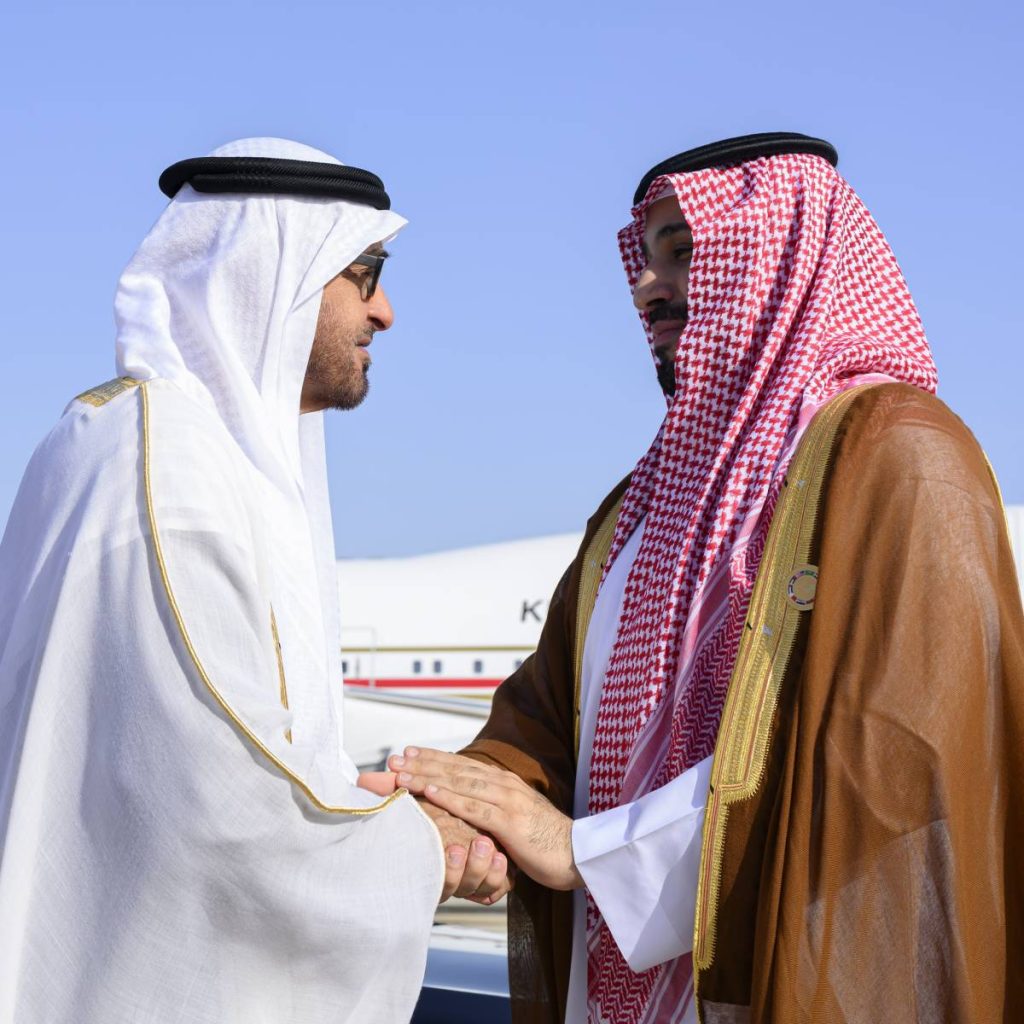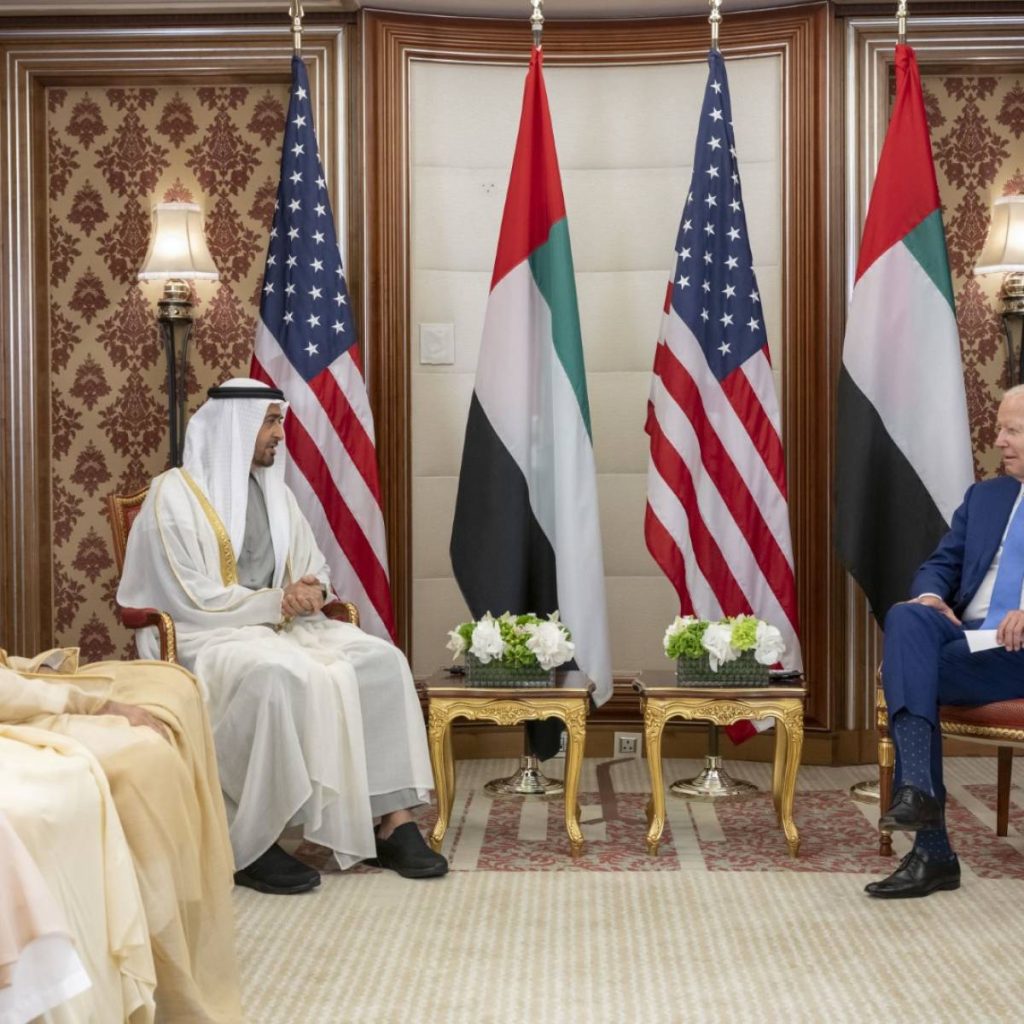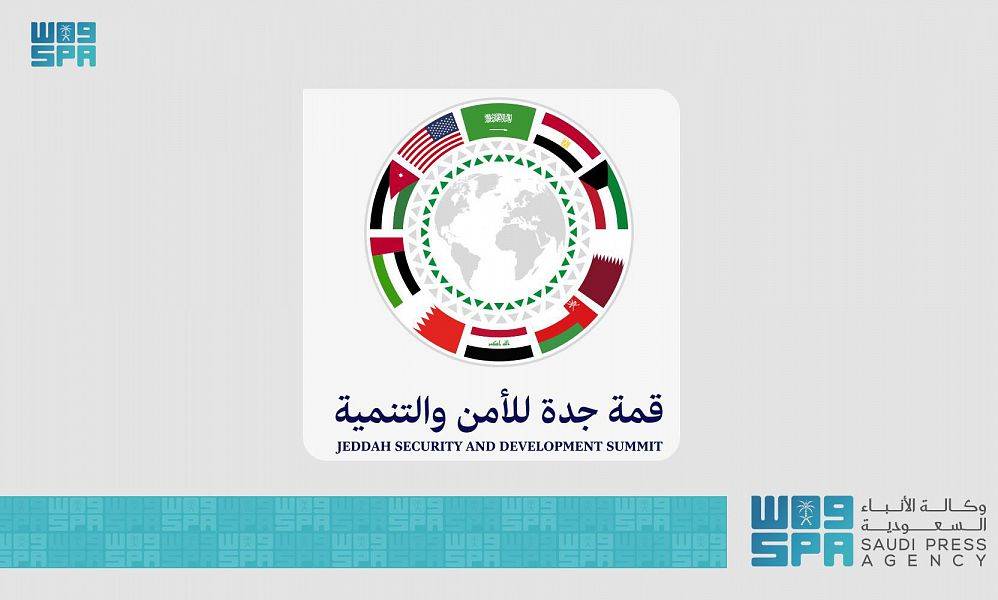India’s commercial capital Mumbai will host one of the largest post-Covid events to discuss India’s relations with the Gulf region. Prominent attendees include Thani bin Ahmed Al Zeyoudi, Minister of State for Foreign Trade, Ministry of Economy, UAE; Lujaina Mohsin Darwish, Chairperson, Mohsin Haider Darwish LLC – ITICS; Member, Majlis A’Dawla (Oman State Council); Chairperson, India-Oman Friendship Society; Harsh Vardhan Shringla, India’s Chief G20 Coordinator; Former Foreign Secretary, India and London-based industrialist Gopichand Hinduja … A special report by Kaliph Anaz
India’s commercial capital Mumbai will host the 2022 edition of the Arabian Sea Dialogue. The event will analyse the historical ties between India and the Gulf region in the backdrop of current post-Covid scenario. Observer Research Foundation (ORF) is organising the event with the support of Bill & Melinda Gates Foundation and Climateworks Foundation.
The ORF said the event will be a milestone moment as the region witnesses an evolutionary change, transcending the traditional economic interests of trade, energy, and employment. The multitude of geopolitical developments within and outside the region are also reshaping the Gulf’s engagement with India and the world.
The 2022 edition of the Arabian Sea Dialogue in Mumbai on September 27 brings together policymakers, business leaders, civil society, and the youth of the region to deliberate on a blueprint for an ‘Arabian Sea Community’ to shape and reinvigorate the vibrance, passion, and potential among the peoples of India and the Gulf—provided, nourished and united by our shared connection, the Arabian Sea.
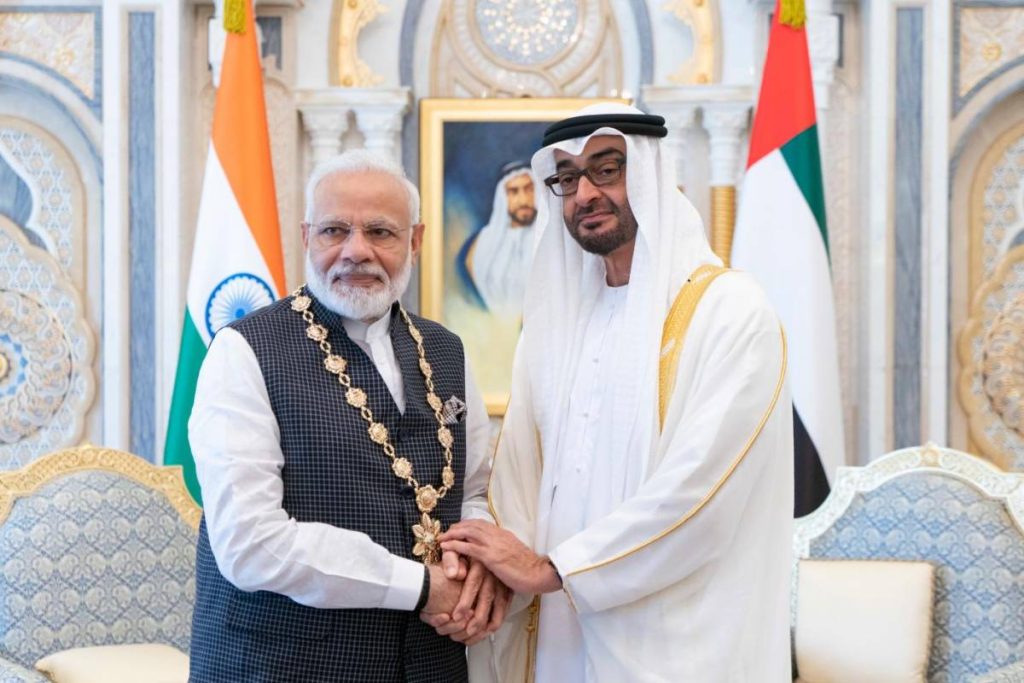
“The pandemic and the heightened geopolitical uncertainty have led to tumult—countries are exploring avenues to transform the crisis into opportunity spurring digital transformation and reconfiguration of supply chains at an unprecedented pace and manner. It has also led to the reimagination and reorganisation of partnerships, such as the I2U2, Quad, and AUKUS, as countries work towards greater synergy and enhanced cooperation.
“Given their shared interests, the Gulf Cooperation Council (GCC) and India are re-energising and revitalising their historical connections, imparting an unprecedented impetus to the partnership. The renewed dynamism in India-GCC relations has presented an opportunity for India and the GCC countries to engage better for more significant mutual benefit and greater global good.”
“West Asia is not new to geopolitical upheavals and great-power rivalries. From the oil age of the mid-20th century turning the region into a fulcrum of global power and influence to the Gulf War in 1991 and the Iraq war in 2001, this region has been critical to international politics and economics, and particularly so for western foreign policy. However, recent developments are shaping new security dynamics in the region.
“The Gulf states are hedging their bets: China is the new power player on the block; the Russia-Ukraine war has further pushed the idea of ‘strategic autonomy’; and struggles of some deals, such as the JCPOA, and the success of others, such as the Abraham Accords, represent the changing political paradigm in historically fraught geography. Meanwhile, major external powers are reassessing their priorities. How are the GCC states responding to this new security environment? What fundamentals have the Abraham Accords altered in West Asia and intra-Arab politics? What does the emerging I2U2 equation portend for the future of this region?
The relationship between India and the GCC has fundamentally changed over the last few years. There has been a significant increase in economic engagement and the setting of deeper trade and investment ties between the two regions. The recently concluded CEPA with the UAE and the highly anticipated FTA with the GCC are a testament to the advancing relationship. Beyond the deepening trade links, the emergence of global value chains and supply chains has allowed the two regions to integrate further and reap the benefits of their comparative advantages.

India’s ascension to G20 presidency in December 2022 also provides an opportunity to bring issues of mutual priority to the global high table. In this backdrop important questions arise. What are the expectations of the GCC from India’s G20 presidency? How can partners reshape their economic relationship through the value chain approach? How can digital technologies be harnessed to bolster the resilience of the supply chains in the region? How can India and the GCC leverage their complementarities to create a more conducive investment environment in the region?
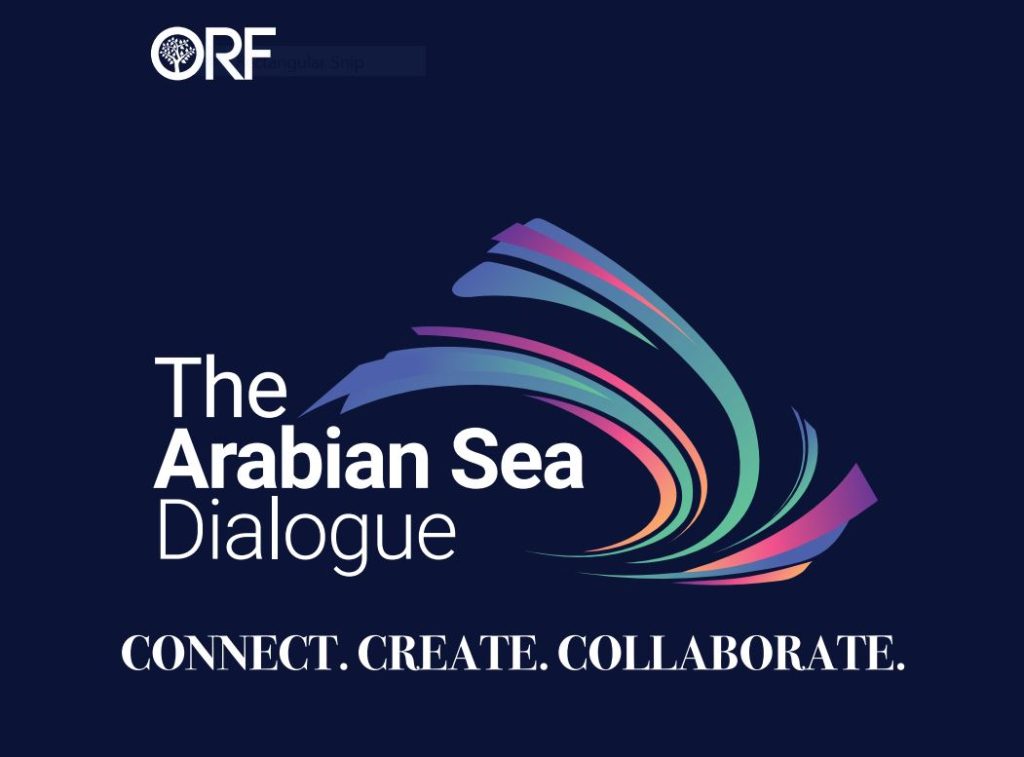
PROGRAMME
Welcome:
● Jaibal Naduvath, Vice President and Senior Fellow, Observer Research Foundation, India
Keynotes:
● Thani bin Ahmed Al Zeyoudi, Minister of State for Foreign Trade, Ministry of Economy, UAE
● Lujaina Mohsin Darwish, Chairperson, Mohsin Haider Darwish LLC – ITICS; Member, Majlis A’Dawla (Oman State Council); Chairperson, India-Oman Friendship Society
● Harsh Vardhan Shringla, India’s Chief G20 Coordinator; Former Foreign Secretary, India
● Pankaj Khimji, Advisor, Foreign Trade and International Cooperation, Ministry of Commerce, Industry and Investment Promotion, Oman; Director, Khimji Ramdas Group; Chairperson, Oman Cricket
Looking Ahead:
● Navdeep Suri, Distinguished Fellow, Observer Research Foundation, India
PANEL DISCUSSION: New Alignments, New Opportunities
Speakers:
● Pankaj Khimji, Advisor, Foreign Trade and International Cooperation, Ministry of Commerce, Industry and Investment Promotion, Oman; Director, Khimji Ramdas Group; Chairperson, Oman Cricket
● Vice Admiral Girish Luthra (Retd.), PVSM, AVSM, VSM, ADC, Former Flag Officer Commanding-in-Chief, Southern and Western Naval Commands, Indian Navy; Distinguished Fellow, Observer Research Foundation, India
● Staff Colonel Pilot Adel Binsanqoor (Retd.), Acting Director of Strategic Study and Scientific Research Division, The Emirates Centre for Strategic Studies and Research, UAE
● Sultan Barakat, Founding Director, Center for Conflict and Humanitarian Studies, Doha Institute, Hamad Bin Khalifa University, Qatar
● Abdullah Baabood, State of Qatar Chair for Islamic Area Studies, Waseda University, Japan
Moderator:
● Shamika Ravi, Vice President, Economic Policy, Observer Research Foundation, India
Special Address
● Vice Admiral Ajendra Bahadur Singh, PVSM, AVSM, VSM, ADC, Flag Officer Commanding-in-Chief, Western Naval Command, Indian Navy
PANEL DISCUSSION: Decoding the New Security Paradigm
Speakers:
● Vice Admiral Ajendra Bahadur Singh, PVSM, AVSM, VSM, ADC, Flag Officer Commanding-in-Chief, Western Naval Command, Indian Navy
● Sultan Barakat, Founding Director, Center for Conflict and Humanitarian Studies, Doha Institute, Hamad Bin Khalifa University, Qatar
● Shaikha Najla Mohamed Salem Alqasimi, Director, Global Affairs Department, B’huth (Dubai Public Policy Research Centre); Former UAE ambassador
● Rajeswari Rajagopalan, Director, Centre for Security, Strategy and Technology, Observer Research Foundation, India
● Mahjoob Zweiri, Director, Gulf Studies Centre, Qatar University, Qatar
Moderator:
● Harsh Pant, Vice President, Studies and Foreign Policy, Observer Research Foundation, India
Special Address
● Harsh Vardhan Shringla, India’s Chief G20 Coordinator; Former Foreign Secretary, India
PANEL DISCUSSION: India, GCC and the G20: New Opportunities, New Possibilities
Speakers:
● Harsh Vardhan Shringla, India’s Chief G20 Coordinator; Former Foreign Secretary, India
● Belkacem Laabas, Senior Advisor and Chairman of the Advisory and Institutional Support Committee, Arab Planning Institute, Kuwait
● Shaikha Najla Mohamed Salem Alqasimi, Director, Global Affairs Department, B’huth (Dubai Public Policy Research Centre); Former UAE ambassador
● Mansour Almarzoqi, Director, Centre for Strategic Studies, Prince Saud Al-Faisal Institute for Diplomatic Studies, Saudi Arabia
● Shivali Lawale, Director, Symbiosis School of International Studies, India
● Mihir Sharma, Director, Centre for Economy and Growth Programme, Observer Research Foundation, India
Moderator:
● Jyoti Malhotra, Senior Consulting Editor, ThePrint, India
Special Address
● Sheikh Humaid bin Ali Al Maani, Chief, Global Affairs Department, Foreign Ministry of Oman
PERSPECTIVES: A Sea of Opportunity
● Gopichand P Hinduja, Co-Chairman, Hinduja Group; Chairman, Hinduja Automotive Limited, United Kingdom
● Manisha Verma, Principal Secretary, Skills, Employment, Entrepreneurship and Innovation, Government of Maharashtra, India
● Siddik Bakir, Director, Oil and Gas Division, Policies and Strategic Planning, Ministry of Energy, Saudi Arabia; CEO, Majlis Advisory
PANEL DISCUSSION: ‘Trade with Trust’: India and the GCC
Speakers:
● Walid Abdmoulah, Economic Advisor and Deputy Director General, Arab Planning Institute, Kuwait
● Arun Raste, Managing Director and CEO, National Commodity and Derivatives Exchange (NCDEX), India
● Abdullah Baabood, State of Qatar Chair for Islamic Area Studies, Waseda University, Japan
● Shubhada Rao, Founder, QuantEco Research, India
● Chandrima Sinha, Vice President, Invest India, National Investment Promotion and Facilitation Agency, Government of India
Moderator:
● Reaven Gerrad D’Souza, Managing Editor, The Times Kuwait
PERSPECTIVES: Changing priorities in the era of the green transition
● Shaymaa Elsharqawi, Chairperson of the Board of Directors, Falcon Institute for Strategic Studies and Human Development, Egypt
● Devanathan Parthasarathy, Professor, Humanities and Social Sciences, IIT Bombay, India
PANEL DISCUSSION: Green Mobility: ‘Driving’ the race to net zero
Speakers:
● Shaymaa Elsharqawi, Chairperson of the Board of Directors, Falcon Institute for Strategic Studies and Human Development, Egypt
● Emre Hatipoglu, Research Fellow, Oil and Gas Programme, King Abdullah Petroleum Studies and Research Center, Saudi Arabia
● Kiran Raju, Founder and CEO, Grene Robotics, India
● Nilanjan Ghosh, Director, Centre for New Economic Diplomacy, Observer Research Foundation, India
● Sharvari Patki, Programme Head, Electric Mobility, WRI India
Moderator:
● Siddik Bakir, Director, Oil and Gas Division, Policies and Strategic Planning, Ministry of Energy, Saudi Arabia; CEO, Majlis Advisory
Leveraging the India-Gulf relationship for Climate Finance
Speakers:
● Walid Abdmoulah, Economic Advisor and Deputy Director General, Arab Planning Institute, Kuwait
● Paul Abraham, President, Hinduja Foundation, India
● Belkacem Laabas, Senior Advisor and Chairman of the Advisory and Institutional Support Committee, Arab Planning Institute, Kuwait
● Srinath Sridharan, Co-Founder, 4P Consulting, India
● Prachi Shevgaonkar, Founder and CEO, Cool The Globe, India
Moderator:
● Shamika Ravi, Vice President, Economic Policy, Observer Research Foundation, India
Special Address
● Sanjay Kumar, Secretary (Youth Affairs), Ministry of Youth Affairs & Sports, Government of India
PERSPECTIVES: An Isthmus of Ideas
● Manisha Verma, Principal Secretary, Skills, Employment, Entrepreneurship and Innovation, Government of Maharashtra, India
● Amer Al Rawas, Chairman, Concordia Group, Oman
PANEL DISCUSSION: Making Arabian Sea Community the Global Innovation Hub
Speakers:
● Amer Al Rawas, Chairperson, Concordia Group, Oman
● Chandrima Sinha, Vice President, Invest India, National Investment Promotion and Facilitation Agency, Government of India
● Manisha Verma, Principal Secretary, Skills, Employment, Entrepreneurship and Innovation, Government of Maharashtra, India
● Mrigank Tripathi, Chief Growth Officer, India & MEA, PeopleStrong, India
● George Paul, Head, Strategic Alliances and Partnerships, JioGenNext, India
● Kshama Fernandes, Vice Chairperson, Northern Arc Capital, India
Moderator:
● Reaven Gerrad D’Souza, Managing Editor, The Times Kuwait
PANEL DISCUSSION: Women Leadership in the Fourth Industrial Revolution
Speakers:
● Lujaina Mohsin Darwish, Chairperson, Mohsin Haider Darwish LLC – ITICS; Member, Majlis A’Dawla (Oman State Council); Chairperson, India-Oman Friendship Society
● Shivali Lawale, Director, Symbiosis School of International Studies, India
● Shaikha Najla Mohamed Salem Alqasimi, Director, Global Affairs Department, B’huth (Dubai Public Policy Research Centre); Former UAE ambassador
● Shaymaa Elsharqawi, Chairperson of the Board of Directors, Falcon Institute for Strategic Studies and Human Development, Egypt
● Ambika Vishwanath, Founder and Director, Kubernein Initiative, India
Moderator:
● Jyoti Malhotra, Senior Consulting Editor, ThePrint, India
PERSPECTIVES: The ‘Y’ Factor: Towards Shaping a Common Arabian Sea Destiny
● Staff Colonel Pilot Adel Binsanqoor (Retd.), Acting Director of Strategic Study and Scientific Research Division, The Emirates Centre for Strategic Studies and Research, UAE
● Madhukeshwar Desai, Founder and CEO, Mumbai Centre for International Arbitration; National Vice President, Bharatiya Janata Yuva Morcha, India
● Kaustubh Dhavse, Officer on Special Duty to the Deputy Chief Minister, Government of Maharashtra, India
PERSPECTIVES: EMERGING ARCHITECTURES
● Hamad Ebrahim Al-Abdulla, Executive Director, Bahrain Center for Strategic, International and Energy Studies (DERASAT), Bahrain
● Mansour Almarzoqi, Director, Centre for Strategic Studies, Prince Saud Al-Faisal Institute for Diplomatic Studies, Saudi Arabia
VALEDICTORY SESSION: Towards a Shared, Prosperous Future
● Lujaina Mohsin Darwish, Chairperson, Mohsin Haider Darwish LLC – ITICS; Member, Majlis A’Dawla (Oman State Council); Chairperson, India-Oman Friendship Society
● Pankaj Khimji, Advisor Foreign Trade and International Cooperation, Ministry of Commerce, Industry and Investment Promotion, Oman; Director, Khimji Ramdas Group; Chairperson, Oman Cricket
● Mahjoob Zweiri, Director, Gulf Studies Centre, Qatar University, Qatar
● Navdeep Suri, Distinguished Fellow, Observer Research Foundation, India
● Sanjay Kumar, Secretary (Youth Affairs), Ministry of Youth Affairs and Sports, Government of India
● Rajesh Shah, Trustee, Observer Research Foundation; Co-Chairperson and Managing Director, Mukand Ltd., India
Vote of Thanks:
● Dhaval Desai, Vice President and Senior Fellow, Observer Research Foundation, India

